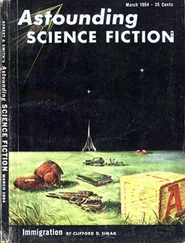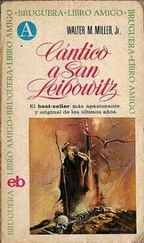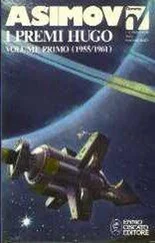“A spiritu fornicationis,
Domino, libera nos.
From the lightning and the tempest,
O Lord, deliver us.
From the scourge of the earthquake,
O Lord, deliver us.
From plague, famine, and war,
O Lord, deliver us.
“From the place of ground zero,
O Lord, deliver us.
From the rain of the cobalt,
O Lord, deliver us.
From the rain of the strontium,
O Lord, deliver us.
From the fall of the cesium,
O Lord, deliver us.
“From the curse of the Fallout,
O Lord, deliver us.
From the begetting of monsters,
O Lord, deliver us.
From the curse of the Misborn,
O Lord deliver us.
A morte perpetua,
Domine ,libera nos.
“Peccatores,
te rogamus, audi nos.
That thou wouldst spare us,
we beseech thee, hear us.
That thou wouldst pardon us,
we beseech thee, hear us.
That thou wouldst bring us truly to penance,
te rogamus, audi nos.”
Snatches of such versicles from the Litany of the Saints came whispering on each panting breath as Brother Francis lowered himself gingerly into the stair well of the ancient Fallout Shelter, armed as he was only with holy water and an improvised torch lighted from the banked embers of last night’s fire. He had waited more than an hour for someone from the abbey to come investigate the dust plume. No one had come.
To abandon his vocational vigil even briefly, unless seriously ill or unless ordered to return to the abbey, would be regarded as an ipso facto renunciation of his claim of a true vocation to life as a monk of the Albertian Order of Leibowitz. Brother Francis would have preferred death. He was faced, therefore, with the choice of investigating the fearsome pit before sunset, or of spending the night in his burrow in ignorance of whatever might lurk in the shelter and might reawaken to prowl in darkness. As a nocturnal hazard, the wolves already made trouble enough, and the wolves were merely creatures of flesh and blood. Creatures of less solid substance, he preferred to meet by the light of day; although, to be sure, scant daylight fell into the pit below, the sun now being low in the west.
The debris which had crashed down into the shelter formed a hill with its crest near the head of the stairs, and there was only a narrow squeezeway between the rocks and the ceiling. He went through it feet first and found himself forced to continue feet first, because of the steepness of the slope. Thus confronting the Unknown face-to-backside, he groped for footholds in the loose heap of broken stone and gradually worked his way downward. Occasionally, when his torch flickered low, he paused to tilt its flame downward, letting the fire spread further along the wood; during such pauses, he tried to appraise the danger about him and below. These was little to be seen. He was in an underground room, but at least one third of its volume was filled by the mound of debris that had fallen through the stair well. The cascade of stone had covered all the floor, crushed several pieces of furniture that he could see, and perhaps had completely buried others. He saw battered metal lockers leaning awry, waist-deep in rubble. At the far and of the room was a metal door, hinged to swing toward him, and tightly sealed by the avalanche. Still legible in flaking paint on the door were the stenciled letters:
INNER HATCH
SEALED ENVIRONMENT
Evidently the room into which he was descending was only an antechamber. But whatever lay beyond Inner Hatch was sealed there by several tons of rock against the door. Its environment was Sealed indeed, unless it had another exit.
Having made his way to the foot of the slope, and after assuring himself that the antechamber contained no obvious menace, the novice went cautiously to inspect the metal door at closer range by torchlight. Printed under the stenciled letters of Inner Hatch was a smaller rust-streaked sign:
WARNING:this hatch must not be sealed before all personnel have been admitted, or before all steps of safety procedure prescribed by Technical Manual CD-Bu-83A have been accomplished. When Hatch is sealed, air within shelter will he pressurized 2.0 p.s.i. above ambient barometric level to minimize inward diffusion. Once sealed, the hatch will be automatically unlocked by the servomonitor system when, but not before, any of the following conditions prevail: (1) when the exterior radiation count falls below the danger level, (2) when the air and water repurification system fails, ( 3 ) when the food supply is exhausted, (4) when the internal power supply fails. See CD-Bu-83A for further instructions.
Brother Francis found himself slightly confused by the Warning, but he intended to heed it by not touching the door at all The miraculous contraptions of the ancients were not to be carelessly tampered with, as many a dead excavator-of-the-past had testified with his dying gasp.
Brother Francis noticed that the debris which had been lying in the antechamber for centuries was darker in color and rougher in texture than the debris which had weathered under the desert sun and in the sandy wind before today’s cave-in. One could tell by a glance at the stones that Inner Hatch had been blocked not by today’s rockslide but by one more ancient than the abbey itself. If Fallout Shelter’s Sealed Environment contained a Fallout, the demon had obviously not opened Inner Hatch since the time of the Flame Deluge, before the Simplification. And, if it had been sealed beyond the metal door for so many centuries, there was small reason, Francis told himself, to fear that it might come bursting through the hatch before Holy Saturday.
His torch burned low. Having found a splintered chair leg, he set it ablaze with his waning flame, then began gathering bits of broken furniture with which to build a dependable fire, meanwhile pondering the meaning of that ancient sign: Fallout Survival Shelter.
As Brother Francis readily admitted, his mastery of pre-Deluge English was far from masterful yet. The way nouns could sometimes modify other nouns in that tongue had always been one of his weak points. In Latin, as in most simple dialects of the region, a construction like servus puer meant about the same thing as puer servus , and even in English slave boy meant boy slave. But there the similarity ended. He had finally learned that house cat did not mean cat house, and that a dative of purpose or possession, as in mihi amicus, was somehow conveyed by dog food or sentry box even without inflection. But what of a triple appositive like fallout survival shelter? Brother Francis shook his head. The Warning on Inner Hatch mentioned food, water, and air; and yet surely these were not necessities for the fiends of Hell. At times, the novice found pre-Deluge English more perplexing than either Intermediate Angelology or Saint Leslie’s theological calculus.
He built his fire on the slope of the rubble pile, where it could brighten the darker crannies of the antechamber. Then he went to explore whatever might remain uncovered by debris. The ruins above ground had been reduced to archaeological ambiguity by generations of scavengers, but this underground ruin had been touched by no hand but the hand of impersonal disaster. The place seemed haunted by the presences of another age. A skull, lying among the rocks in a darker corner, still retained a gold tooth in its grin — clear evidence that the shelter had never been invaded by wanderers. The gold incisor flickered when the fire danced high.
Читать дальше








